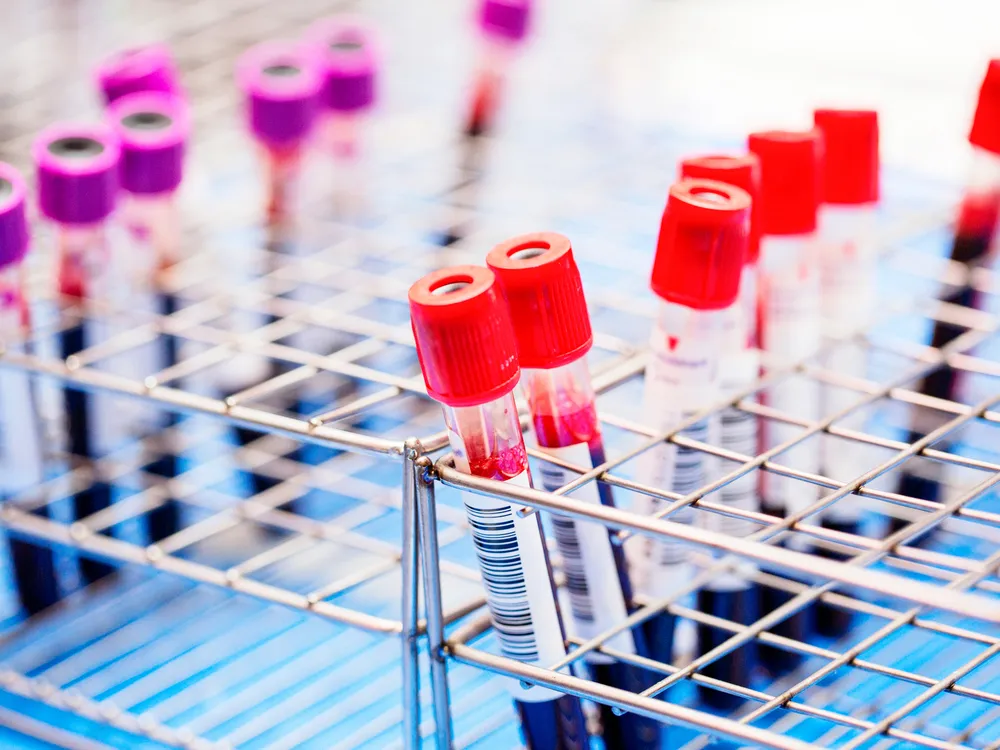Alzheimer’s Blood Test Outperforms Standard Diagnostics in New Study
The blood test accurately diagnosed Alzheimer’s around 90 percent of the time, compared to 73 percent for specialists and 61 percent for primary care physicians

A blood test for diagnosing Alzheimer’s disease was accurate around 90 percent of the time in a new study of people experiencing cognitive problems.
Dementia specialists correctly determined whether or not participants in the study had Alzheimer’s only 73 percent of the time, while primary care physicians were 61 percent accurate, researchers reported this week in the journal JAMA. The researchers confirmed whether or not patients had Alzheimer’s using spinal tap or PET scan.
Accurate blood tests for Alzheimer’s “could streamline the diagnostic workup and treatment of [Alzheimer’s],” the study authors write.
“Now, we screen people with mammograms and PSA or prostate exams and other things to look for very early signs of cancer,” Adam Boxer, a neurologist at the University of California, San Francisco, who did not contribute to the findings, tells the New York Times’ Pam Belluck. “And I think we’re going to be doing the same thing for Alzheimer’s disease and hopefully other forms of neurodegeneration.”
Other research has also looked at blood tests for Alzheimer’s.
“Overall, this is a nice addition to a rapidly growing literature, although not necessarily a game changer per se,” Cliff Abraham, a neuroscientist at the University of Otago who was not involved in the study, says to the Washington Post’s Andrew Jeong.
An estimated 5.8 million Americans over the age of 65 had Alzheimer’s disease in 2020, a number that is projected to triple by 2060, according to the Centers for Disease Control and Prevention (CDC). The disease is the sixth-leading cause of death among adults in the U.S.
While the disease has no cure, two treatments have been approved that can help people with early symptoms of Alzheimer’s. But before people can receive these treatments, there needs to be biological evidence that they have Alzheimer’s, and Alzheimer’s is difficult to diagnose.
At specialized clinics, symptomatic Alzheimer’s is misdiagnosed between 25 and 35 percent of the time, according to the new study. PET scans and spinal taps are more accurate. But these tests are more expensive and invasive, per the Washington Post.
“I have patients not infrequently who I am convinced have Alzheimer’s disease and I do testing and it’s negative,” Suzanne Schindler, a co-author of the study and neurologist at Washington University in St. Louis, tells Lauran Neergaard of the Associated Press (AP).
For the new study, the researcher looked at a protein tied to Alzheimer’s disease called p-tau217. “The p-tau217 blood test is turning out to be the most specific for Alzheimer’s and the one with the most validity. It seems to be the front-runner,” Maria Carrillo, chief science officer of the Alzheimer’s Association, which partially funded the study, says to CNN’s Sandee LaMotte.
The study included more than 1,200 participants in Sweden seeing a doctor for cognitive symptoms. Around 23 percent of the participants had subjective cognitive decline, 44 percent had mild cognitive impairment and 33 percent had dementia. They were 74 years old on average. The study should be validated in other countries, the researchers write.
The researchers found that the blood test had a high level of accuracy, and they say that future studies should look at how such blood tests influence clinical care.
Experts say blood tests shouldn’t be the only tool used for diagnosing Alzheimer’s, and that they should only be used for people with cognitive decline, writes the New York Times.
For people who may have Alzheimer’s, wait times for appointments with specialists and tests are expected to lengthen in the future, as the number of people with Alzheimer’s increases, per CNN.
“By combining a brief cognitive test with an accurate blood test of Alzheimer's pathology in primary care, we can reduce unnecessary referrals, and shorten appointment wait times,” Soeren Mattke, a researcher at the University of Southern California who presented at the Alzheimer's Association International Conference on July 28, says to Medscape Medical News’ Megan Brooks.
